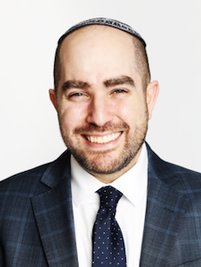What’s in a name? In the case of Hanukkah, a lot
During religious school a few Sundays ago, I challenged my sixth- and seventh-grade students to identify the central idea of Hanukkah in as few words as possible.
As you can imagine, some mentioned giving and receiving presents, while others proclaimed their love of latkes and doughnuts.
After sharing a few laughs, we began taking a deeper dive into the historic and spiritual aspects of the festival. Correctly, some stated that Hanukkah celebrates our ancestors’ military victory over our oppressors. Others, rightly, spoke of the importance of miracles and never giving up.
And then, of course, we realized that another answer was right before us: the name of the festival itself.
The word Hanukkah means inauguration, or dedication, and reminds us of how Judah the Maccabee and his brothers rededicated the Temple in Jerusalem after they defeated Antiochus IV, in 167 BCE. The Temple, having been defiled with an idol, needed to be cleansed and rededicated. From this, we learn that the holiday is about dedicating ourselves, and the world around us, to a sacred purpose.
Incidentally, the Hebrew spelling of Hanukkah also tells us a lot about how to celebrate the festival. According to Haaretz journalist Shoshana Kordova, the first letter, het, represents the number eight (as in the number of days in the holiday) and the second letter, nun, is the first letter in the word nerot, meaning candles. The last three letters in Hanukkah, vav, kaf and hey, are an acronym for vehalakhah k’veit Hillel, meaning that the way we light the candles is in agreement with the teaching of Beit Hillel (who taught that we add a candle each night, instead of starting with eight and then taking one away each night). Impressive for a five-letter word!
So what is the central idea that we should be thinking of as we light the Hanukkah candles? Yes, we should remember the military victory. Yes, we should remember the miracle of the oil. And yes, we should eat delicious oily foods and exchange gifts. But may I suggest that we also ask ourselves (and those around us): to what are you rededicating yourself this year? What ideals, actions and values did you identify during the pandemic that you want to continue? Which practices or traditions that lapsed do you want to bring back into your life?
May this year’s Hanukkah inspire us to live lives of greater holiness, dedicated to serving the noblest of causes.
MICHAEL FEL is the senior rabbi at Temple Emanu-El, in Providence.








